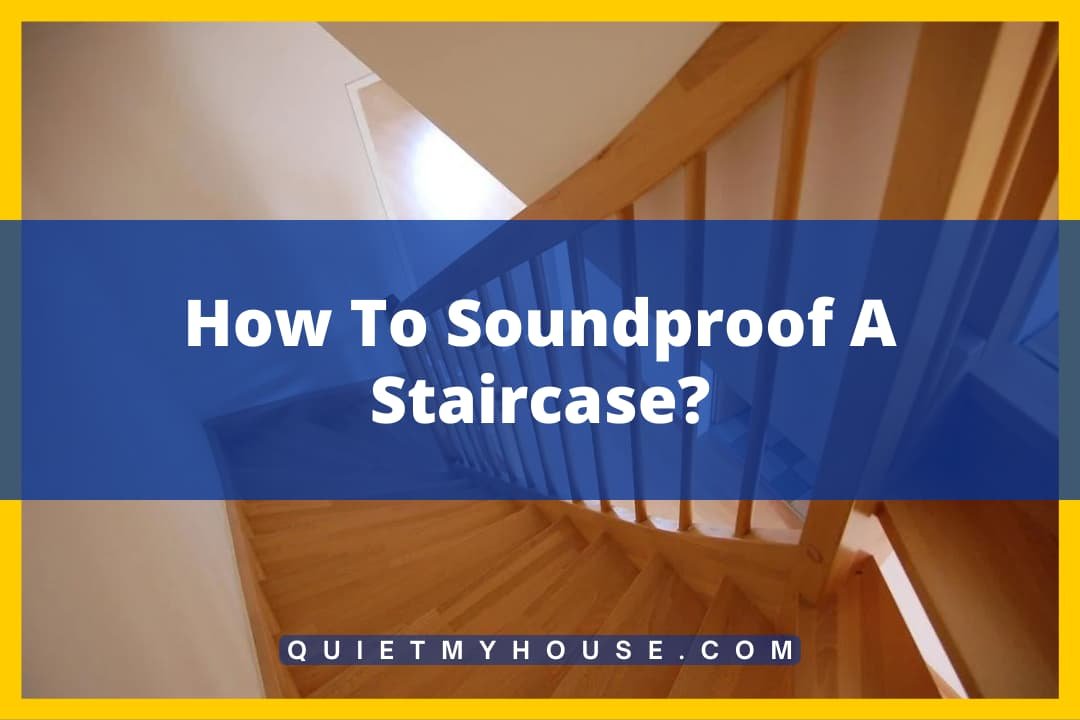In this article, you will explore the topic of AC compressor sound blankets and their safety. As the name suggests, these blankets are designed to reduce the noise produced by your AC compressor. While they can be an effective solution for minimizing sound disturbances, it is essential to understand their safety implications.
By examining the pros and cons, we will shed light on the potential risks and benefits associated with AC compressor sound blankets. So, let’s dive into the discussion and find out if these sound blankets are a safe addition to your AC system.
What are AC compressor sound blankets?
AC compressor sound blankets are specialized coverings designed to reduce the noise produced by an air conditioning (AC) compressor.
Compressors are an essential component of AC units and are responsible for compressing the refrigerant, which cools the air that is circulated throughout the system.
However, these compressors can generate a significant amount of noise during operation, which can be an annoyance for homeowners, neighbors, or occupants in commercial buildings.
AC compressor sound blankets are specifically engineered to mitigate this noise without compromising the efficiency and functionality of the compressor.
Definition of AC compressor sound blankets
AC compressor sound blankets are essentially covers made of sound-absorbing materials that are designed to fit over the compressor unit.
These materials are typically composed of layers of soundproofing material, such as dense foam or insulation, enclosed in a durable outer shell.
The blankets are created to encapsulate the compressor and absorb the sound waves generated during its operation, preventing them from propagating and reducing the noise emitted.
Purpose of AC compressor sound blankets
The primary purpose of AC compressor sound blankets is to minimize the noise produced by the compressor unit.
By reducing the noise pollution caused by the operation of AC systems, these sound blankets contribute to a more peaceful and comfortable environment for both residents and surrounding occupants.
Additionally, they offer various benefits, including improved energy efficiency, extended lifespan of the AC compressor, and protection against environmental elements.
Benefits of using AC compressor sound blankets

Reduction of noise pollution
One of the key advantages of AC compressor sound blankets is their ability to significantly reduce noise pollution. AC compressors can generate loud and disruptive noises, especially in residential areas or commercial buildings where units are located close to living or working spaces.
The sound-absorbing materials used in the blankets are specifically designed to absorb and dissipate the sound waves produced by the compressor, effectively minimizing the noise level within an acceptable range.
Improved energy efficiency
AC compressor sound blankets not only contribute to noise reduction but can also improve the overall energy efficiency of the AC system.
By reducing the noise produced by the compressor, the blankets can help create a more stable and efficient operating environment for the entire system. This, in turn, can lead to energy savings, as the AC system doesn’t need to work as hard to overcome noise-related inefficiencies.
Extended lifespan of the AC compressor
The use of AC compressor sound blankets can also prolong the lifespan of the compressor unit itself. The blankets provide an additional layer of protection for the compressor, shielding it from environmental elements such as rain, debris, and excessive sunlight exposure.
By preventing these external factors from affecting the compressor, the blankets help maintain its optimal performance and reduce the risk of premature wear or damage.
Protection against environmental elements
In addition to reducing noise pollution, AC compressor sound blankets serve as a protective barrier against various environmental elements.
They act as a shield, preventing water or debris from entering the compressor unit, which could potentially cause damage or malfunctions.
The blankets also offer insulation against extreme temperatures, helping to maintain a more stable operating environment for the compressor.
Safety considerations
While AC compressor sound blankets offer significant benefits in terms of noise reduction and protection, it is essential to consider certain safety aspects before installing them.
Compatibility with the AC compressor
Before purchasing and installing an AC compressor sound blanket, it is crucial to ensure that it is compatible with the specific make and model of the AC compressor.
Manufacturers often provide compatibility guidelines or recommendations, as mismatches could potentially impact the performance or safety of the compressor unit.
It is advisable to consult the AC unit’s manual or seek advice from a professional technician to ensure proper compatibility.
Installation precautions
Proper installation of an AC compressor sound blanket is essential to avoid any safety hazards.
Ensure that the blanket is securely fastened and tightly sealed around the compressor unit, as loose or poorly fitted blankets may pose risks such as entanglement or damage to the compressor.
Inadequate installation may also compromise the effectiveness of the sound blanket in reducing noise.
Ensuring proper ventilation
While AC compressor sound blankets are designed to reduce noise, they should not obstruct the ventilation or airflow around the compressor unit.
Adequate airflow is crucial for the compressor’s optimal performance and preventing overheating. When installing a sound blanket, ensure that it does not block any air intake or exhaust vents.
Regularly check the blanket to ensure it remains in the correct position and does not impede the airflow.
Potential risks associated with AC compressor sound blankets
While AC compressor sound blankets offer numerous benefits, it is important to be aware of potential risks that may arise from their use.
Restricted airflow
Improper installation or a poorly fitted sound blanket can restrict the airflow around the compressor, potentially leading to reduced efficiency or overheating issues.
It is crucial to ensure that the blanket does not obstruct any air intake or exhaust vents on the compressor unit. Regularly inspect the blanket to make sure it is not sagging or impeding the airflow.
Overheating issues
Inadequate ventilation due to the improper installation or use of a sound blanket can result in overheating of the compressor unit. Continuous exposure to high temperatures can lead to compressor malfunctions or premature wear.
Regularly monitoring the compressor’s temperature and ensuring that the sound blanket does not impede its cooling capabilities are essential to prevent overheating issues.
Interference with maintenance and repairs
When using an AC compressor sound blanket, it is important to consider its potential interference with maintenance and repair tasks.
Sound blankets should be easily removable or have appropriate access points to allow technicians to conduct necessary inspections, repairs, or maintenance procedures.
Failure to provide easy access may result in delays or difficulties when professional assistance is required.

Choosing the right AC compressor sound blanket
Choosing the right AC compressor sound blanket is crucial to ensure optimal noise reduction and safety. Consider the following factors when selecting a sound blanket for an AC compressor unit:
Quality and durability
Investing in a high-quality and durable sound blanket is essential to ensure long-term effectiveness. Look for sound blankets made from resilient and weather-resistant materials that offer excellent sound-absorbing properties.
Research the manufacturer’s reputation and read customer reviews to gauge the product’s quality and durability.
Proper fit and size
Selecting a sound blanket that fits properly over the AC compressor unit is crucial for both noise reduction and safety.
Measure the dimensions of the compressor unit and choose a sound blanket that matches those measurements.
A properly fitted sound blanket will maximize noise reduction and ensure the blanket does not pose any risks due to loose or inadequate coverage.
Certifications and standards
When choosing an AC compressor sound blanket, consider products that have relevant certifications and meet industry standards.
Certifications such as UL (Underwriters Laboratories) or ANSI (American National Standards Institute) indicate that the product has undergone rigorous testing and meets specific safety and performance requirements.
Installing and maintaining AC compressor sound blankets
Proper installation and maintenance of AC compressor sound blankets are essential for their ongoing effectiveness and safety. Follow these guidelines to ensure optimal performance:
Follow manufacturer’s instructions
Always refer to the manufacturer’s instructions for the specific sound blanket being installed. These instructions typically provide detailed guidelines on proper installation techniques, recommended maintenance procedures, and any specific considerations unique to the product.
Regular cleaning and inspections
Perform regular cleaning and inspections of the AC compressor sound blanket to ensure it remains in good condition. Dirt, debris, or other contaminants can accumulate on the blanket’s surface, potentially reducing its noise reduction capabilities.
Use a soft brush or cloth to remove any debris and inspect for signs of wear, such as tears or loose stitching.
Addressing any signs of wear or damage
If any signs of wear or damage are noticed, such as tears, rips, or degradation of the sound-absorbing material, take immediate action.
Damaged sound blankets may no longer effectively reduce noise or provide proper protection to the compressor. Replace the blanket if necessary or consult a professional technician for further guidance.

Alternative solutions for noise reduction
While AC compressor sound blankets are highly effective in reducing noise pollution, there are alternative solutions available for further noise reduction, depending on the specific circumstances.
Sound barriers and enclosures
For situations where significant noise reduction is required, constructing sound barriers or enclosures around the entire AC unit can provide enhanced noise reduction.
These structures, typically made of specialized soundproof materials, create a physical barrier that prevents noise from escaping the enclosure, further reducing the sound levels produced.
Isolating the AC compressor
Isolating the AC compressor from the rest of the building’s structure or using vibration isolation mounts can help reduce noise transmission.
By physically separating the compressor unit or absorbing the vibrations produced during operation, the overall noise impact on the surrounding environment can be minimized further.
Vibration and noise isolating mounts
Using vibration and noise isolating mounts specifically designed for AC compressors can significantly reduce the noise transmitted through vibrations.
These mounts are typically made of specialized rubber or other sound-absorbing materials that dampen vibrations, preventing them from propagating throughout the building structure and causing additional noise.
Regulations and codes
When installing AC compressor sound blankets or considering alternative noise reduction measures, it is important to be aware of local noise regulations and building codes that may apply.
Different regions may have specific guidelines regarding acceptable noise levels and proper installation of noise-reducing equipment. Familiarize yourself with these regulations to ensure compliance and avoid any potential legal issues or penalties.
Local noise regulations
Many municipalities have specific noise regulations in place to protect residents and maintain a peaceful environment.
These regulations may include noise level restrictions during certain times of the day or limits on the acceptable decibel levels produced by AC units.
Consult local authorities or visit the municipal website to familiarize yourself with any noise regulations that may apply to your area.
Building codes and restrictions
Building codes and restrictions may also dictate specific requirements for AC compressor sound blankets or any alternative noise reduction measures.
These codes could cover factors such as installation procedures, fire safety, or structural considerations. Familiarize yourself with the building codes applicable to your location to ensure compliance and prevent any potential compliance issues.
Professional installation and consultation
For complex or larger-scale installations, or if you are uncertain about the proper installation or safety considerations, it is advisable to seek professional advice and potentially hire licensed technicians.
Seeking professional advice
Professional advice from technicians with expertise in AC systems and noise reduction can provide valuable insights and ensure the most suitable solutions for your specific needs.
These professionals can assess your individual situation, recommend appropriate sound mitigation measures, and ensure that the installation and usage adhere to safety standards.
Hiring licensed technicians
For intricate installations or cases where compliance with building codes and regulations is crucial, hiring licensed technicians is highly recommended.
Licensed technicians have the necessary training and experience to carry out proper installations and ensure that all safety considerations and regulations are met. Their expertise will help minimize the risk of installation errors or safety hazards.
Conclusion
AC compressor sound blankets play a critical role in reducing noise pollution associated with AC compressors.
With their ability to absorb and dissipate sound waves, these blankets create a more peaceful and comfortable environment for homeowners, occupants, and neighbors.
However, safety considerations should always be a priority, including proper installation techniques, compatibility with the AC compressor, and adequate ventilation.
By choosing the right sound blanket, following manufacturer’s instructions, and conducting regular inspections, the benefits of noise reduction and extended compressor lifespan can be enjoyed.
Additionally, alternative noise reduction measures, such as sound barriers, isolating the AC compressor, or using vibration and noise isolating mounts, can be considered to further reduce noise levels.
Awareness of local noise regulations and building codes is crucial in ensuring compliance. When in doubt or for more complex installations, professional consultation and hiring of licensed technicians are recommended to ensure safety, compliance, and optimal noise reduction.
Striking a balance between noise reduction and functionality is key to create a comfortable living or working environment while maintaining the efficiency of the AC system.




